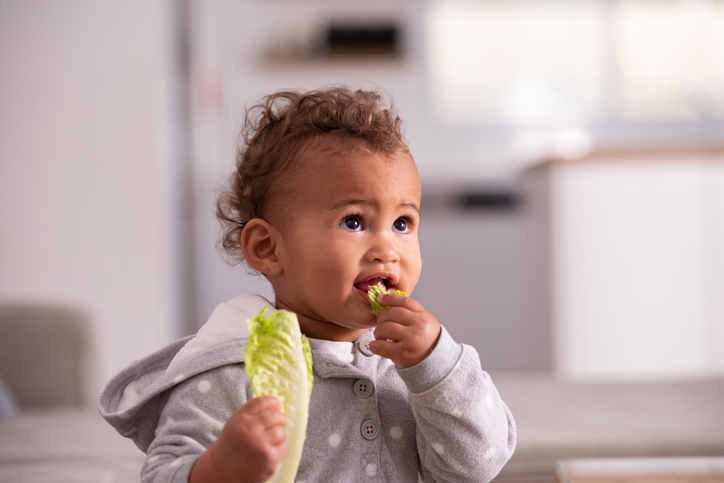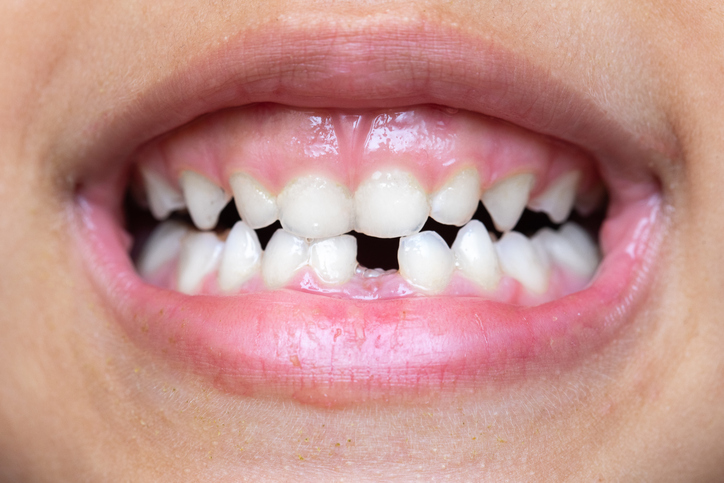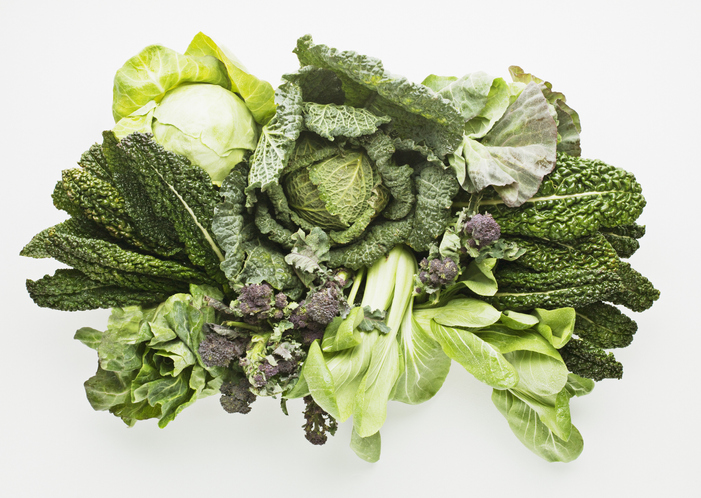Why the Health of Baby Teeth is Important and How Leafy Greens May Help

By Sydney Kronfle, pH Labs Researcher & Contributor
I worry about my two-year-old son’s dental health constantly. Getting him to brush his teeth is like wrestling a baby alligator! Many people tell me not to worry too much about his oral hygiene because he’s going to lose his baby teeth eventually, but what they don’t know is that the health of baby teeth is extremely important.
If you have a basic understanding of the purpose of baby teeth, it's easy to see why their health matters.Basically, baby teeth serve as placeholders for adult teeth. You don’t want tooth decay messing with these placeholders and disrupting the foundation for the adult teeth. If a child loses teeth prematurely due to an issue such as decay, this may cause other baby teeth to drift in this space where the tooth is lost and eventually disrupt the alignment of adult teeth when they start to come in. This can lead to orthodontic issues.
Baby teeth are also essential for eating, of course, and even speech development. It’s also extremely important to help your child learn and implement good oral hygiene habits so that they carry this practice into adulthood. One study published by the National Institutes of Health (NIH) discusses how untreated cavities in baby teeth “are a strong predictor of future caries in permanent teeth.”

“Cavities (also known as caries or tooth decay) are the most common chronic disease of childhood in the United States,” according to the Centers for Disease Control and Prevention (CDC).
“Untreated cavities can cause pain and infections that may lead to problems with eating, speaking, playing, and learning. Children who have poor oral health often miss more school and receive lower grades than children who don’t.”
The good news is there is a lot we can do to be proactive, even beyond wrestling your kid to brush their teeth!
Stanford Medicine Children’s Health advises that a baby has their first dental check-up within six months of the first tooth coming in (12 months at the latest). I’m going to be very vulnerable and admit that my son did not have his first dental appointment until recently (he is two). Not to use these reasons as excuses, but I think my anxiety around taking him to the dentist and misinformation I initially absorbed about baby teeth contributed to me being way overdue for his first dental appointment. Fortunately, his teeth are in good shape. I know many parents, especially first-time parents, can relate to the anxiety and struggle of trying to do everything right. There are so many unknowns when it’s the first time taking care of a baby or toddler, but don’t delay that first dental appointment or be afraid to take your child to the dentist if they are overdue as my child was.
You can be extremely proactive with diet.

Limiting sugar and processed foods is a great way to be proactive about your child’s oral health and hygiene, but it also turns out that consuming leafy greens may contribute to healthy teeth and gums for us all. The Medical Xpress article discussing this reports that eating leafy greens may be more effective for promoting oral health than using mouthwash. This all has to do with a molecule found in leafy greens called nitrate. Furthermore, it may be possible to use nitrate as a natural alternative for treating oral disease.
“The multiple health benefits of leafy greens are partly because spinach, lettuce and beetroots are brimming with nitrate, which can be reduced to nitric oxide by nitrate-reducing bacteria inside the mouth,” according to the Medical Xpress article.
“Nitric oxide is known to lower blood pressure and improve exercise performance. However, in the mouth, it helps to prevent the overgrowth of bad bacteria and reduces oral acidity, both of which can cause gum disease and tooth decay.”
This is definitely motivation for me to eat more salad, but the real challenge is getting my son to eat more leafy greens. I just shared a blog - 7 Tips for Getting Your Child To Eat More Veggies This Year! It’s a challenge, but with a little bit of innovation in the kitchen and lots of patience it can be done.
For more information on oral health and hygiene, check out these pH blogs. I especially recommend Nutritional Solutions to Help You Fight Gum Disease.
Enjoy your healthy life!
Disclaimer: This article is not intended to provide medical advice. Please consult with your doctor or another competent healthcare practitioner to get specific medical advice for your situation.
The pH professional health care team includes recognized experts from a variety of health care and related disciplines, including physicians, attorneys, nutritionists, nurses, and certified fitness instructors. This team also includes the members of the pH Medical Advisory Board, which constantly monitors all pH programs, products, and services. To learn more about the pH Medical Advisory Board, click here.







